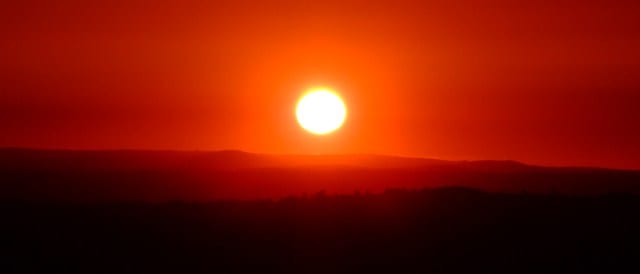On May 1, the entire editorial board at the New York Times published an article revealing an astonishing ignorance of easily accessible facts. The NYT argues that Germany’s energy transition proves that the world needs nuclear. Craig Morris explains.

Did you know:
• That in May 2011, just two months after Fukushima, the Swiss Parliament reacted to public demonstrations by resolving to phase out nuclear by 2034?
• That in June 2011, Italians turned out in masses to reject nuclear power (proposed by then Minister-President Berlusconi)? It was the first referendum since 1995 that drew enough voters to constitute a quorum. Italy has no nuclear plants, and the Italian public made sure the country never will.
• That in October 2011, Belgium resolved to phase out its nuclear plants by 2025, essentially simply reaffirming a law from 2003. The Belgians now get roughly 10 percent of their electricity from wind and solar alone, almost as much as the Germans do (13%). They also added a special tax to nuclear, which energy giant GDF Suez contested in court – and lost. The country initially aimed to decommission a few of its older nuclear plants in 2015, but they were not restarted after being shut down in 2012 for a scheduled overhaul because of safety concerns.
• And then there’s Austria, which resolved in 1986 to keep a completely finished nuclear plant closed and remain nuclear-free. In April 2012, the country’s government resolved to require Austrian utilities to demonstrate by 2015 that they are also not importing any nuclear power from neighboring countries.
If you knew all that, congratulations – you are probably a regular reader of my work, all of which is available for free online. If not, don’t worry – you’re probably not paid to know such things. But as we see from the article by “the editorial board” of the New York Times entitled “The right lessons from Chernobyl,” some who are paid to know such things don’t know them either. Given the list above of how other countries reacted, you can imagine my surprise upon reading this:
Only Germany succumbed to panic after the Fukushima disaster and began to phase out all nuclear power in favor of huge investments in renewable sources like wind and sun. One consequence has been at least a temporary increase in greenhouse emissions as Germany has been forced to fire up old coal- and gas-powered plants.
The facts for power from nuclear, coal, gas, and renewables are available for free here in German. Power from natural gas is down by around a quarter from 2011 to 2013 and continued to plummet in Q1 2014; gas is the big loser in the Energiewende.

Renewables grew from 2011 to 2013 in the power sector by 27.9 TWh, far outstripping the drop in nuclear of only 10.7 TWh. The remainder – 17.2 TWh – is renewables offsetting power from fossil fuel, though mainly natural gas was offset because coal is cheaper.
Coal power was up in 2013, though less coal was consumed per kilowatt-hour, and coal power is markedly down in 2014. The main reason for the uptick in coal power from 2011-2013 is foreign demand. Germany had around 33 TWh of net power exports in 2013. Take out the Netherlands and France, the two biggest importers of German electricity, and coal power production drops.
But then, pointing out that German carbon emissions are up partly because nuclear France is so reliant on German electricity is not in line with the New York Times’ call for nuclear.
There lies the problem – criticism of Germany’s energy transition is loudest among supporters of nuclear, whose main battle cry is now that we need carbon-free electricity, but renewables are not (yet) ready to do the job alone. Germany has set out to test that hypothesis, so it is crucial for nuclear supporters to prove Germany wrong. And the facts be damned.
Source: Energy Transition. Reproduced with permission.







